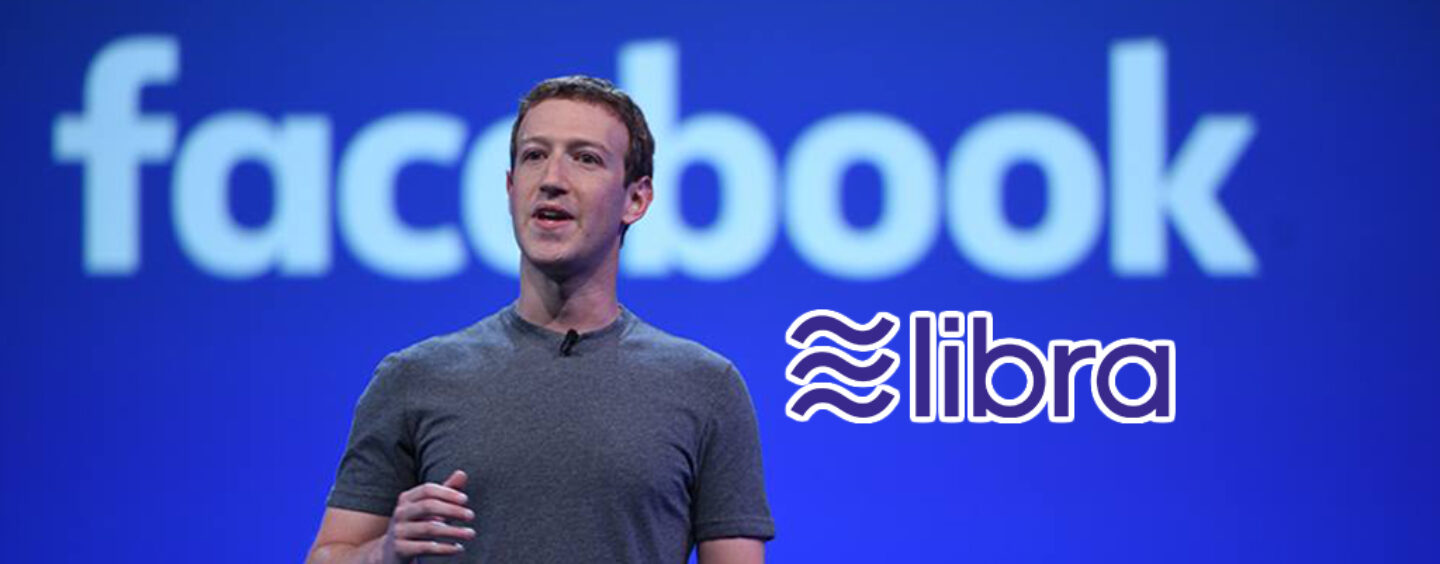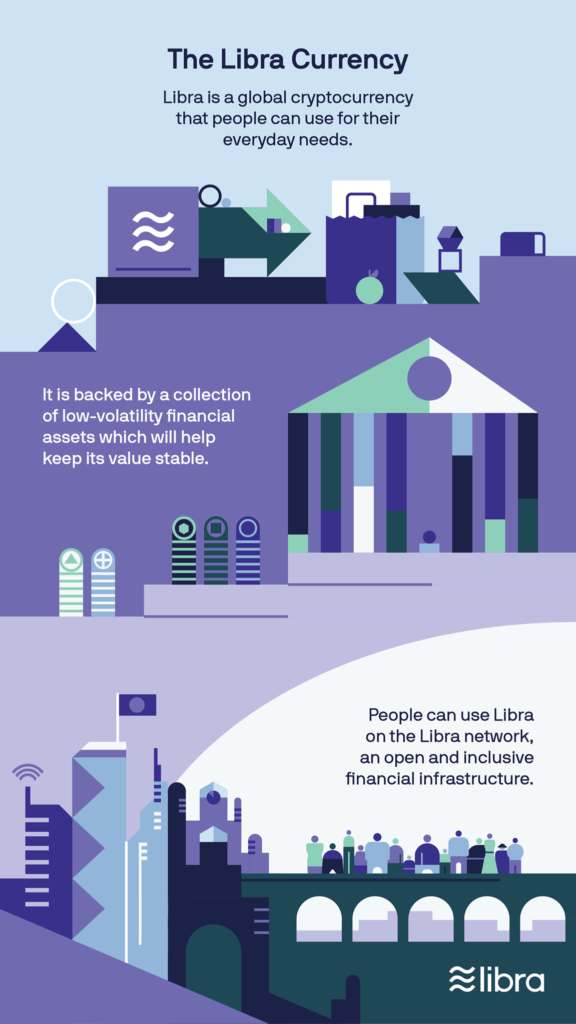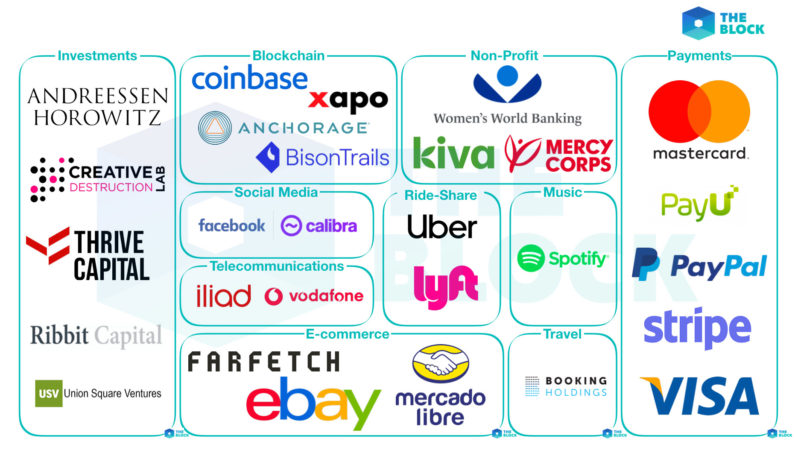
News Summary: Facebook’s Libra Crypto Project Sparks Fear and Criticism
by Fintech News Hong Kong June 24, 2019Last week, Facebook unveiled plans for a new cryptocurrency called Libra. Set to launch as early as 2020, Libra will be a stablecoin fully backed by a reserve of real assets. The goal, it says, is to avoid high fluctuations of value so the crypto can be used for everyday transactions across Facebook and be useful for commerce.
The project is the result of a year-long effort and aims to spur growth on various of Facebook’s platforms, hopefully turning crypto payments across the company’s WhatsApp, Facebook and Instagram platforms into a business that complements its advertising operation.
Facebook hopes Libra will be accepted as a form as payment and other financial services will be built on its blockchain-based network.
“This is the goal for Libra: A stable currency built on a secure and stable open-source blockchain, backed by a reserve of real assets, and governed by an independent association,” according to the Libra whitepaper. “Our hope is to create more access to better, cheaper, and open financial services.”
Libra
Libra will be overseen by the Libra Association, a non-profit entity based out of Switzerland that will operate a validator node and hold sufficient stake in Libra. All founding members, which include Visa, Mastercard, PayPal, Uber, Spotify and Vodafone, have contributed US$10 million to be part of the network, and will have an equal say in how the cryptocurrency is managed.
So far 27 companies have joined, and Facebook hopes another 70 or more will join in the future, including banks.
“This is very early – 27 organizations right now, 100 by the time we launch,” David Marcus, head of the Facebook blockchain team that’s spearheading the project, said in a Bloomberg Television interview. “And by that time, I definitely expect to see banks in there, I definitely expect to see other large technology companies and I definitely expect to see more diversity of organizations in terms of geographical distribution.”
Facebook has also created a subsidiary called Calibra through which Libra related financial services will be offered, including a digital wallet to store and exchange the cryptocurrency. Calibra will seek to be licensed as a money transmission license.
Technically speaking, Libra will be built on an open source blockchain, the Libra Blockchain, which intends to serve “as a solid foundation for financial services, including a new global currency, which could meet the daily financial needs of billions of people.”

Libra infographic by Libra Association via Facebook
Skepticism
Libra has sparked considerable skepticism among regulators and financial analysts. One of the main criticism is the fact that the underlying assets of the Libra fund will be made up of bank deposits and other low risk government securities, though customers wouldn’t be able to collect interest on their capital.
Instead, the interest earned from customers’ deposits and securities will be used to pay the system’s operating costs, and if left over, dividend payments to founding members.
The Financial Times’ Alphaville calls it “a glorified exchange traded funded which uses blockchain buzzwords to neutralize the regulatory impact of coming to market without a license as well as to veil the disproportionate influence of Facebook in what it hopes will eventually become a global digital reserve system.”
But Libra’s governance, the highly centralized nature of the initiative, and the monetary risks related to a global digital reserve system backed by powerful firms, were also found to major areas of concern.
In Europe, the announcement was met immediately with political opposition, with calls for tighter regulation of the company.
French Finance Minister Bruno Le Maire called on the Group of Seven (G7) central bank governors to prepare a report on Facebook’s project for their July meeting. His concerns include privacy, money laundering and terrorism finance.
“This money will allow this company to assemble even more data, which only increases our determination to regulate the internet giants,” Le Maire said last week.
Markus Ferber, a German member of the European Parliament, said Facebook, with more than 2 billion users, could become a “shadow bank” and that regulators should be on high alert.
Even Chris Hughes, one of Facebook’s co-founders, said global regulators should intervene to slow the progress of the cryptocurrency, arguing that the companies involved in the Libra Association would be able to “disrupt and weaken” nation states.
“If even modestly successful, Libra would hand over much of the control of monetary policy from central banks to these private companies,” said Hughes, who co-chairs the Economic Security Project, an anti-poverty campaign group. “If global regulators don’t act now, it could very soon be too late.”
He warned that if enough people in emerging economies traded local currency for Libra, it would threaten the ability of governments to manage their fiscal policies, and advised emerging markets to place a temporary ban on local banks and payment processors accepting the currency until the implications are fully understood.
“What Libra backers are calling ‘decentralization’ is in truth a shift of power from developing world central banks toward multinational corporations and the US Federal Reserve and the European Central Bank,” he said.
Hughes added that if Libra is successful, Facebook and its partners would hold excessive control over the development of critical technologies such as identify verification, as well as effectively writing the rules on matters such as privacy and response to theft.

Libra Association founding members, image via theblockcrypto.com
Featured image credit: Facebook








